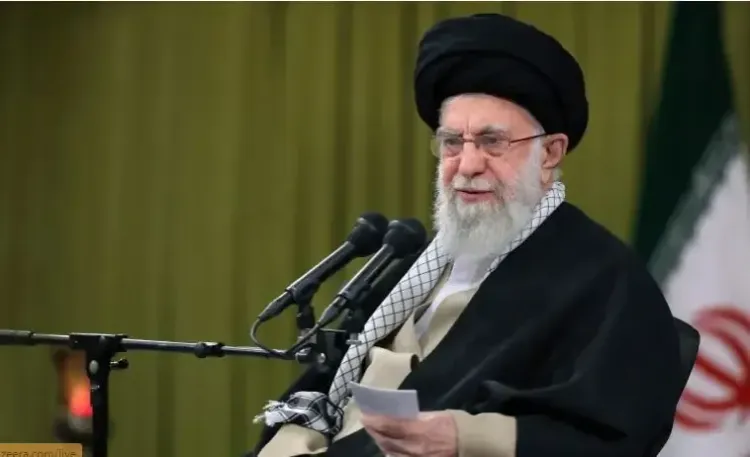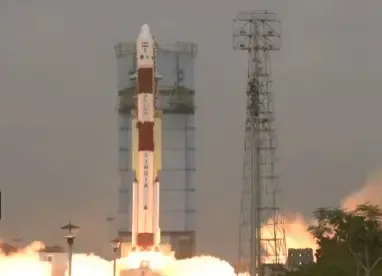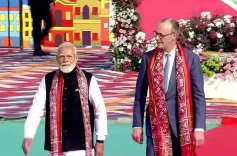Iran's Leader Cautions Against Overly Optimistic or Pessimistic Views on US Talks

Synopsis
Key Takeaways
- Ali Khamenei warns about excessive emotions regarding US talks.
- Discussions focus on Iran's nuclear program and sanctions.
- Second round of talks scheduled for Saturday in Muscat.
- Trust issues persist between Iran and the US.
- Domestic affairs should not be linked to the talks.
Tehran, April 15 (NationPress) Iran's Supreme Leader Ali Khamenei on Tuesday cautioned against "extreme optimism or pessimism" regarding the indirect negotiations between Tehran and Washington.
During a meeting with senior government officials in the capital, Tehran, he referred to discussions involving Iranian Foreign Minister Seyed Abbas Araghchi and US Special Envoy to the Middle East Steve Witkoff about Tehran's nuclear programme and sanction relief. This initial round of talks occurred in Muscat, Oman, on Saturday, as indicated in a statement on his website.
He stated, "We should not be extremely optimistic or extremely pessimistic about these talks," adding that the negotiations could yield results or not.
He emphasized, "We are, of course, very distrustful of the other side. However, we are optimistic about our capabilities."
The Iranian leader also warned against "tying the country's affairs to the talks," stressing that initiatives in industrial, economic, construction, and cultural sectors, along with the execution of major projects, should continue without interruption as they are unrelated to the discussions taking place in Oman, as reported by Xinhua news agency.
The second round of the indirect negotiations between Iran and the United States is set for Saturday in Muscat.
These talks were initiated by US President Donald Trump, who threatened Iran with military action and secondary tariffs if an agreement over its nuclear programme was not reached.
Iran entered into a nuclear agreement, officially known as the Joint Comprehensive Plan of Action, with six significant nations — Britain, China, France, Germany, Russia, and the United States — in July 2015, agreeing to restrictions on its nuclear activities in exchange for relief from sanctions.
However, the United States withdrew from the agreement in May 2018 and reinstated sanctions, prompting Iran to reduce some of its nuclear obligations. Efforts to revive the nuclear deal have not made substantial headway.










